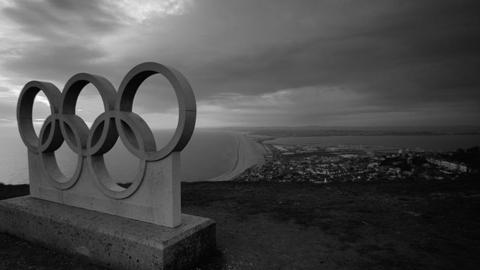The first Olympics historically recorded were held in Olympia in 773 BC, but some historians believe that the event actually dates back to the thirteenth century. It is an ancient and wildly popular event – in fact, the most popular sporting event in history.
The actual origins of the Olympics are unknown; a popular legend, however, describes an unlikely victory of a footrace by the Greek Hero Hercules. Hercules celebrated his victory by declaring that a re-enactment of this race be held every four years; and this race, expanded to include other activities such as swimming, jumping, chariot racing, and discus-throwing, and served as the origin of the modern Olympics.
As the event grew in popularity, competitors were drawn from all over the world to try their hand at the great games. The competition became more and more intense, beginning to swell with more participants as well as more events. In the 7th century, it had become a massive event with hundreds of competitors and over twenty-three categories to compete in.
Training for the Ancient Olympics
In ancient Greece, training for the Olympics was more than just an activity – it was a way of life. Competitors were practically born into the sport; physical sports training began at an early age and was considered an essential part of daily life in ancient Greece. Some philosophers, including Aristotle, argued with the Ancient Greek sports-oriented mentality, stating that pubescent boys should spend more time on intellectual exercises; so there was generally a three-year hiatus from physical exertion while the boys studied, and it was only after this time that they could choose to become Olympic competitors. Drill for the Ancient Greek Olympics tangled a multifaceted humdrum of difficult exercises, comprising stamina, cardio-vascular, strength, and survival routines.
Ten months of intensive training
In order to even qualify for the great sport, competitors had to undergo a minimum of ten months in an intensive physical training program. Some tried this demanding trial on their own, but the most hired a delicated trainer who would individually put them through the plenty of hurdles to becoming a efficacious competitor. These trainers were often ex-athletes themselves, and had their own ideas about what it took to become an Olympic champion. They had a repute for being punitive, even forbidding; the toughest trainers, however, were habitually the most extremely sought after, as it was supposed that they would drive their athletes to the utmost levels of excellence through their austerity.
Ancient Greek Sporting Events
By the 7th century, the Olympics had expanded to include over a score of different competitions, including chariot racing, discus throwing, pencracium (a barbaric mixture of boxing and wrestling which often and popularly ended in the breaking of the opponents fingers), the pentathlon, and many others, including the traditional genres of wrestling, running, swimming, etc. Not all of these events, however, were open on a yearly basis; the regulators chose two, three, or four of the competitions to be held each Olympics so that spectators would not become bored with the same events.
The Ancient Olympic Experience
Those participating in the great games, as well as those attending, were presented with a fantastic feast for the eyes and the stomach. A five-day spread of food was prepared, and attendees flocked from miles away to enjoy the spectacle and the feast. The games were organized in honor of the Greek God Zeus, whose image rose thirteen meters tall over the assembly, encrusted with gold and ivory. Women were banned from the event, although they had their own event, called Heraia, to compete in.
